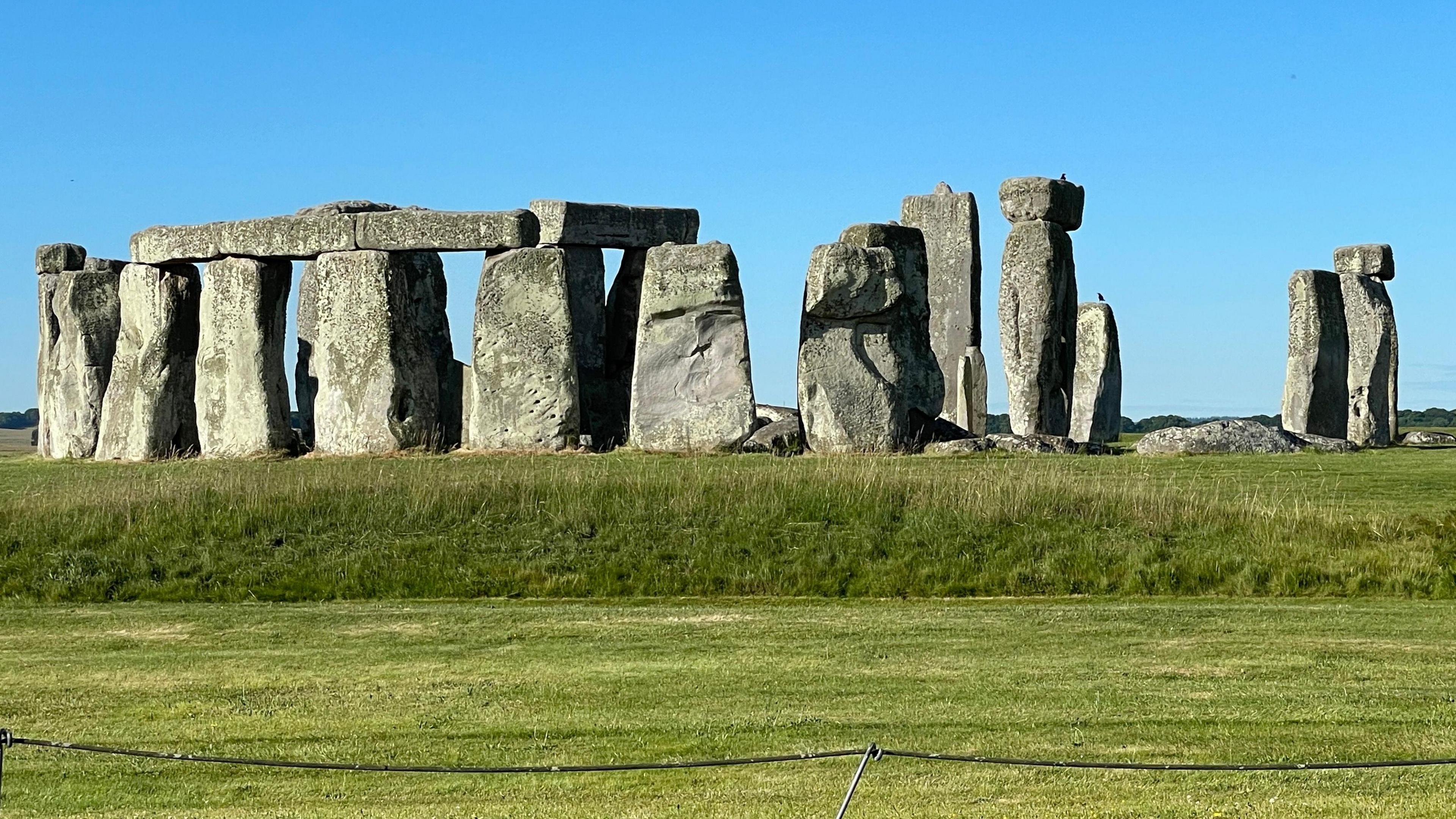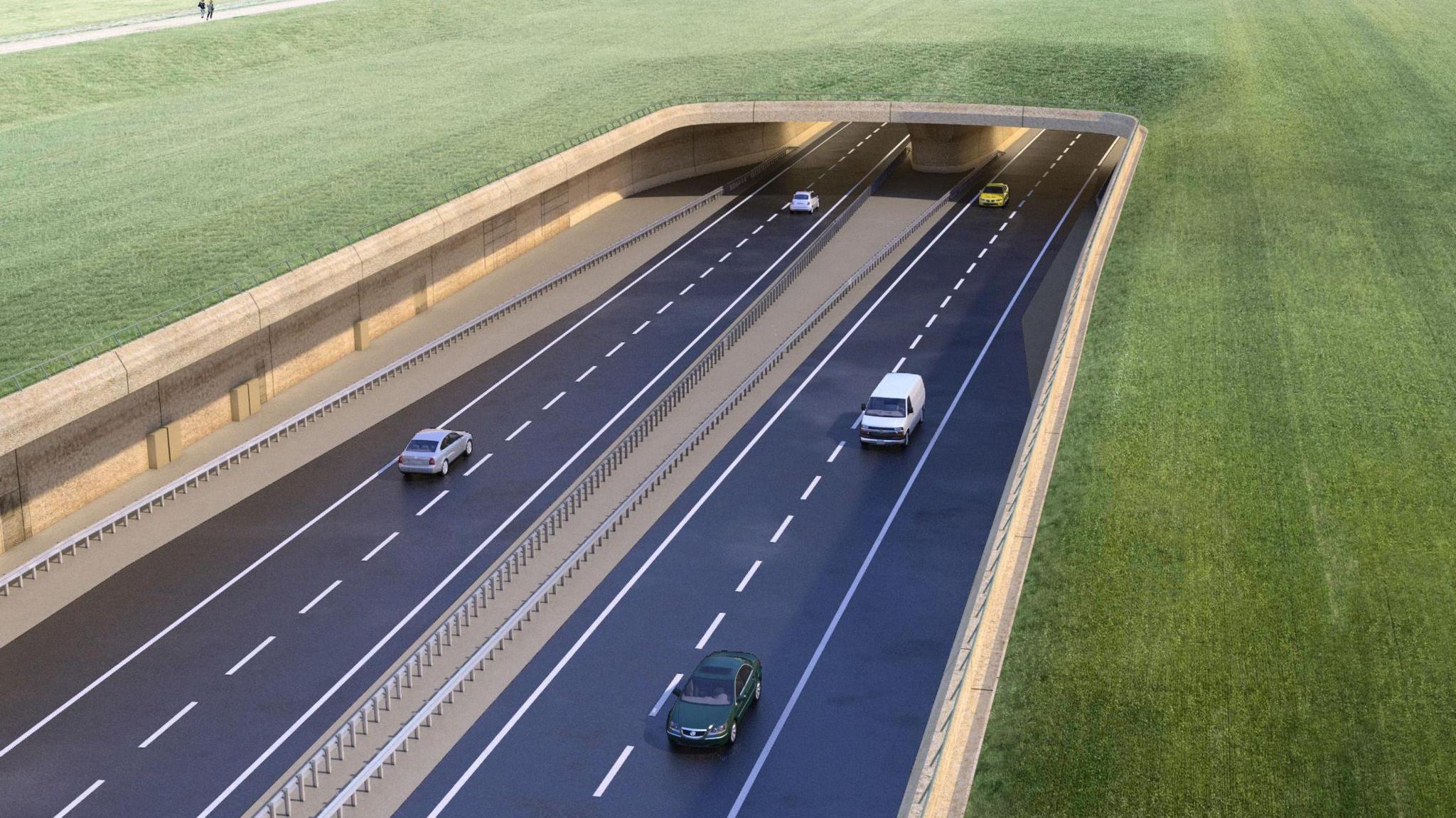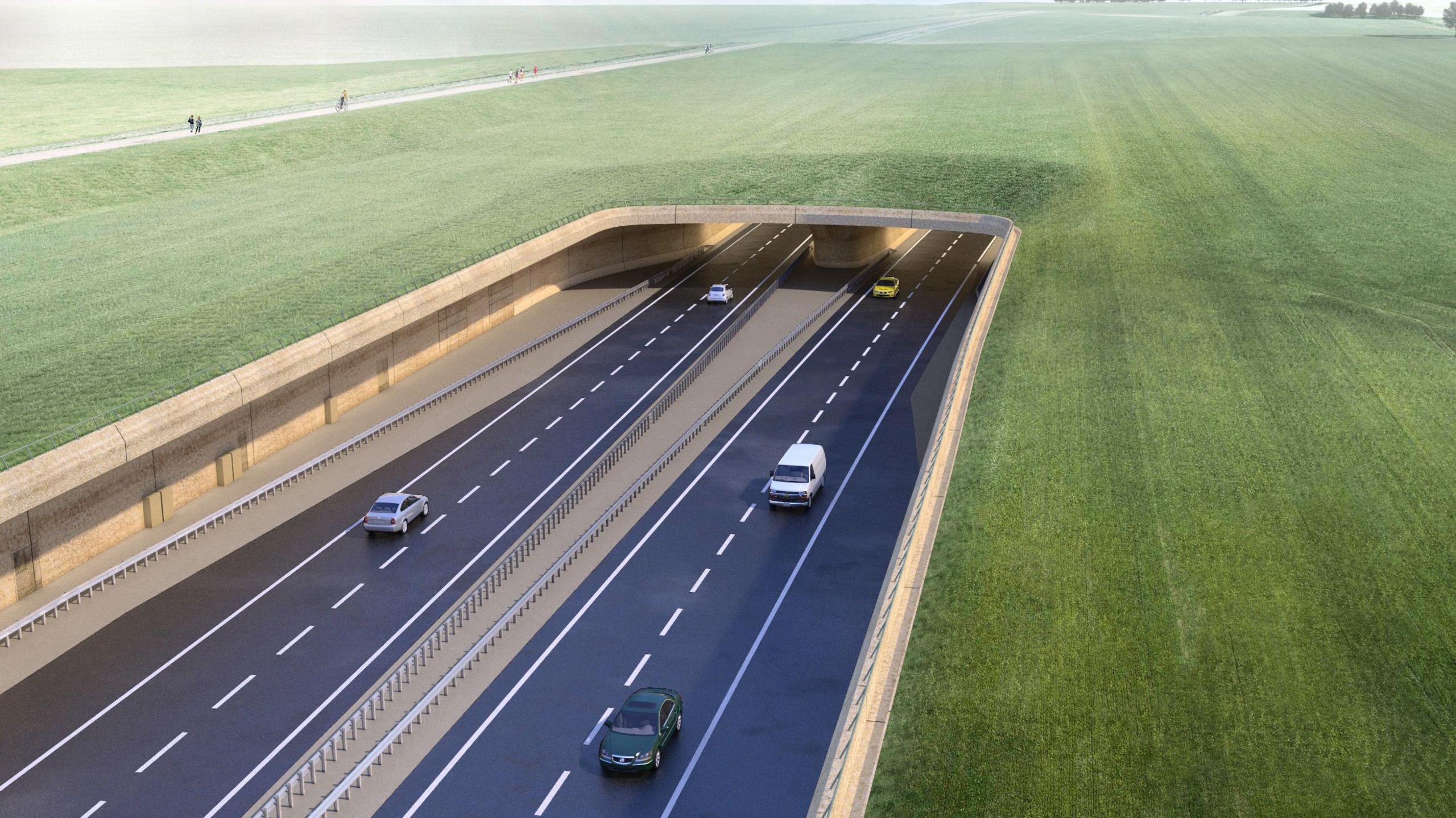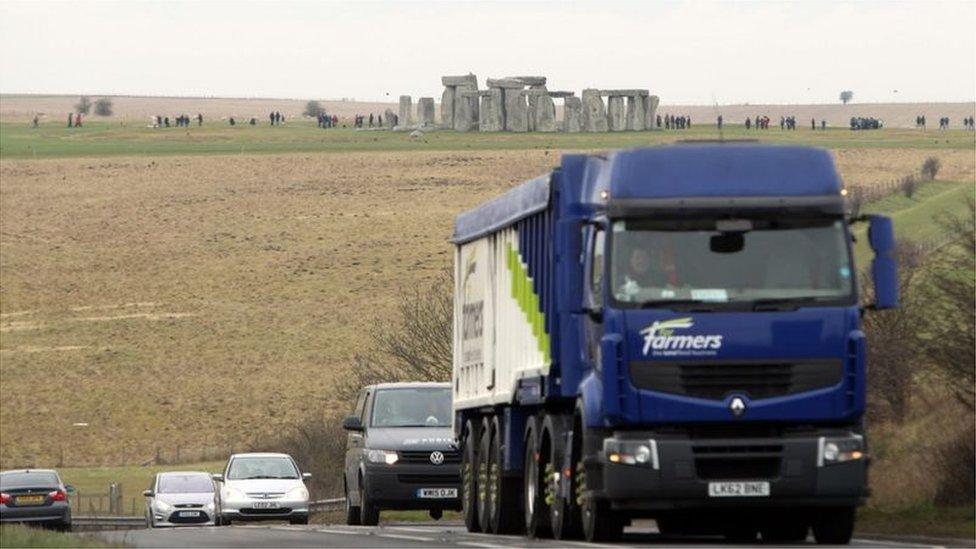Stonehenge tunnel could 'cost £250k per metre'

The total cost of the project up to the end of May was £166,230,578, including £287,605 on legal fees
- Published
A two-mile road tunnel past Stonehenge could cost £250,000 per metre of road - as it is revealed costs so far amount to £166m.
The scheme, which was approved by the previous Conservative government, has been met with a number of legal challenges from Save Stonehenge World Heritage Site (SSWHS).
A Freedom of Information request showed the total planning spend up to the end of May was £166,230,578.
The BBC has been told that £287,605 of public money has so far been spent on legal fees. John Adams, chair of Stonehenge Alliance, said it would "make it arguably one of the most expensive roads in the world".

Highways England said it wanted to build the tunnel to reduce traffic and cut journey times on the A303
National Highways, who said the tunnel will remove the sight and sound of traffic passing the historic site, contracted Wessex Archaeology to search the proposed route, focused largely on the two tunnel portals within the World Heritage Site.
It hired more than 100 archaeologists, in a contract costing £4.6m to date, to start a year of digging from last spring but the work was halted because of the latest legal challenge.
SSWHS argues that cancelling the tunnel scheme would save "at least £2.5bn", having already cost £160m in the planning phase.
Mr Adams said he had worked out the cost of the scheme based on the total budget.
"That works out at around £250,000 per metre of road, which will make it arguably one of the most expensive roads in the world," he said.
"We think there are much better uses of £2.5bn."
During the election campaign, the new Prime Minister, Sir Keir Starmer, failed to commit to the scheme and told the BBC that his government would wait for the legal process to end before making a decision about the future of the tunnel.
The story so far
Planning permission for the scheme, which is backed by the National Trust and Wiltshire Council and involves overhauling eight miles of major road from London to South West England, was first approved in November 2020, despite Planning Inspectorate officials saying it would cause "permanent, irreversible harm" to the area.
The decision was later quashed by the High Court in 2021 after a campaign.
However, the project, which Highways England said will reduce and cut journey times, was again given the green light by the DfT in July 2023.
The scheme was later put on hold after another High Court challenge in December, with campaigners arguing the legal process by the then Conservative government was wrong.
A judicial review dismissed their challenge in February and said the Department for Transport had followed the correct process.
The outcome of the judicial review was believed to be incorrect by campaigners, and after appealing the decision, were granted approval to challenge it in May.
The next stage of the legal campaign begins on Monday at the Court of Appeal, with campaigners arguing the approval was wrong in law and are challenging a dismissal of their application to overturn it in a judicial review.
Mr Adams said: "This is not a hearing about the design or the merits of the road itself, but about whether the Minister was properly briefed. Did he consider alternatives properly?"
The court hearing is expected to last three days.
Follow BBC Wiltshire on Facebook, external, X, external and Instagram, external. Send your story ideas to us on email or via WhatsApp on 0800 313 4630.
- Published21 May 2024

- Published24 June 2024

- Published20 February 2024

- Published12 December 2023
